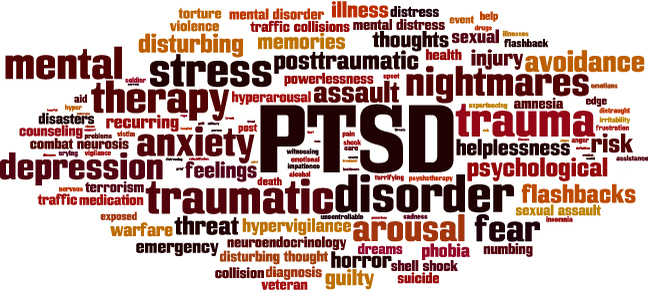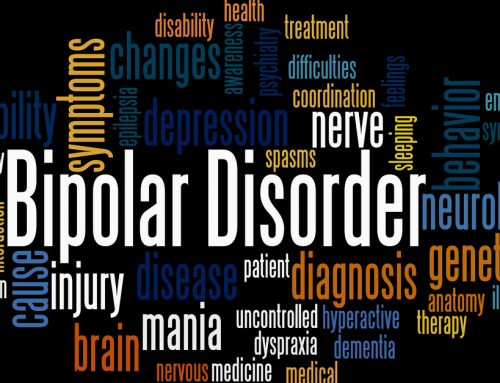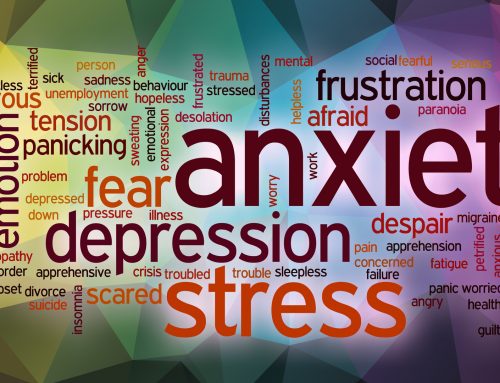Win Social Security Disability With a Top PTSD Disability Lawyer
If you cannot work due to Post Traumatic Stress Disorder (PTSD), call the best A+Rated PTSD Disability Lawyer for a Free Consultation to win your Social Security Disability benefits.
What is PTSD and What Are Common Symptoms?
Post Traumatic Stress Disorder (PTSD) is a mental condition often caused by terrifying, startling, or traumatic events. Symptoms can include persistent anxiety, nightmares, flashbacks, and uncontrollable thoughts and behavior in response to the startling or terrifying event.
PTSD Symptoms can occur shortly after the event or they may not occur until several months or even years later. The symptoms can be mild at first but can become more severe later. The traumatic event can take several forms. You may experience the traumatic event yourself. You may also witness such an event, which of course, can be as equally traumatic.
Some people will have little to no symptoms following a traumatic events. Others who have mental symptoms following a traumatic event may be able to cope adequately and symptoms may just gradually subside. Others, however, may not be so lucky.
PTSD symptoms can cause significant problems with a person’s social, family, and work life. Symptoms from PTSD can cause mood changes, confusion, lack of interest, overwhelmed feelings, fear, and emotional distress. PTSD symptoms can cause people to go way out of their way to avoid people, places, and situations. Simply trying to avoid PTSD symptoms can significantly impact a person’s entire life. Learn more from a PTSD article from the Mayo Clinic.
PTSD and Suicidal Thoughts or Attempts
If you or someone you know experiences suicidal thoughts, call the National Suicide Prevention Lifeline at 1-800-273-TALK (1-800-273-8255) to speak with a trained counselor. If you or someone you know is in danger of attempting suicide or has made an attempt, call 911 or your local emergency number. Do not leave the person alone. If possible, take the person to the nearest hospital emergency room.
Causes of Disability with PTSD
Some people believe that PTSD is something that you suffer only after participating in military service. Although many who have served in the military do suffer from PTSD, there are many other causes which are totally nonmilitary related. Here are some examples:
- Stressful Experiences;
- Frightening Experiences;
- Near Death Experiences;
- Threatened injury or death;
- Serious injury;
- Sexual violence or abuse;
- Physical Assault;
- Intense trauma;
- Long lasting trauma;
- Repeated Trauma;
- Combat Exposure;
- Physical Abuse;
- Child abuse;
- Auto Accidents;
There are many other events or situations that can lead to PTSD. If you or somebody you know may be suffering from PTSD or any other mental disorder, you should seek professional help immediately. If you cannot work because of PTSD, you should call for a Free Consultation with a PTSD Disability Lawyer with the Highest A+ rating from the Better Business Bureau.
PTSD Triggers
Many daily activities and occurrences can trigger reminders or even flashbacks of a previous traumatic event. These can include odors, noises, muffler backfire, colors, visuals, voices, to name a few. A PTSD trigger can include anything that simply reminds you of the original traumatic event leading to Post Traumatic Stress Disorder.
As stated previously, symptoms for most people will subside quickly without recurrence. When symptoms linger and affect your life, it is time to seek treatment from an appropriate mental health professional. If you experience difficulty sustaining employment, you should also speak with an experienced PTSD Disability Lawyer for free to obtain disability benefits.
Can you Win Disability with PTSD?
As indicated, many people are able to cope with symptoms after a traumatic event. They are fortunate enough to be able to attend to their daily home and work activities despite their symptoms following trauma. On the other hand, other people suffer serious symptoms that affect home and work life. Work performance may suffer. Work attendance issues may result in ultimate job termination. These are real issues that affect one’s ability to sustain employment. If your attendance or time off task at work falls to unacceptable levels, you cannot sustain employment and should qualify for disability benefits. You must, however, be unable to or be expected to be unable to work for at least 12 continuous months to qualify.
The Social Security Administration uses a step by step process known as the Sequential Evaluation Process to decide whether to award or deny disability benefits. At one step early in the Sequential Evaluation Process, SSA will decide whether you meet an Impairment Listing. Impairment Listings are very difficult to meet. But, if you do meet an Impairment Listing, you will win your SSDI and SSI claims without the need to satisfy the remaining steps in the process. So, if you are able to prove that you satisfy a Listing through treatment notes and opinions from your Mental Health Professionals, you can easily win your disability claim.
Win Disability with a PTSD Impairment Listing
As previously indicated, PTSD can be very disabling and severe enough to prevent you from working. SSA recognizes this. In fact, SSA uses Impairment Listing 12.15 which pertains to “Trauma and Stress Related Disorders” when deciding disability cases based upon disability with PTSD. The explanatory notes to Listing 12.15 specifically state in no uncertain terms that PTSD is an example of a disorder included in Listing 12.15. The notes further state “[T]hese disorders are characterized by experiencing or witnessing a traumatic or stressful event, or learning of a traumatic event occurring to a close family member or close friend . . . .”
How do you win with a PTSD Impairment Listing? It is not easy. But when you do meet a listing, you win without need to analyze other steps in the process. It is important to remember, however, that you must meet all the requirements of the listing.
Listing 12.15 entitled Trauma and stressor-related disorders includes PTSD and contains several requirements. Basically, you must have medical documentation of several symptoms and events. You must also have very serious to extreme limitations in ability to understand, remember, interact, concentrate, persist, or maintain pace, and adapt. Broken down into elements, Listing 12.15 requires:
Medical Documentation of ALL of the following:
- Exposure to actual threatened death, serious injury, or violence;
- Subsequent involuntary re-experiencing of the traumatic event (memories, dreams, flashbacks);
- Avoidance of external reminders of the event;
- Disturbance in mood and behavior; and
- Increases in arousal and reactivity (exaggerated startle response, sleep disturbance)
AND
Very Serious (Marked) limitation in two OR Extreme Limitation in one of the following areas of mental function:
- Understand, remember, or apply information;
- Interact with others;
- Concentrate, persist, maintain pace;
- Adapt or manage onself;
OR
You can also meet Listing 12.15 by proving the following:
You must have a serious and persistent mental disorder in this Listing lasting at least 2 years with evidence of BOTH;
- Medical treatment or mental health therapy, psychosocial supports, or an ongoing highly structured setting that is ongoing and diminishes symptoms and signs of disorder; and
- Marginal adjustment, i.e., minimal capacity to adapt to changes in the environment or to demands not already a part of daily life;
One way of winning with Listing 12.15 is simply by making a copy of Listing 12.15 and taking it to your mental health professionals. Ask them if you meet the Listing. If so, let them write a letter explaining how you meet the listing. Their opinions in that regard must be supported by medical evidence including treatment notes. You can read and or copy Listing 12.15 in its entirety here.
Can I Still Win Disability with PTSD without a Listing?
Yes, you can still win disability with PTSD even if you do not meet a Listing. Whether or not you may meet a Listing, you should always call a PTSD Disability Lawyer for a Free Consultation regarding your SSDI and SSI claims. Even if you do not meet the literal terms of a Listing, you still may suffer excessive time off task or excessive work absences. This will make you incapable of sustaining employment. Under those or similar circumstances, you should qualify for disability benefits provided you are unable to do past work or other generally available work.
Who is the Best PTSD Disability Lawyer to Win Your SSDI and SSI case?
There are several factors to consider when choosing the best PTSD Disability Lawyer to win your disability claim. The best disability lawyers do several things that set them above the rest. First, the best disability lawyers should be accredited and highly ranked with the Better Business Bureau so that you know you are dealing with a credible disability law-firm. Next, the best disability lawyers are real lawyers, not representatives or advocates. Many people are not aware that “representatives” or “advocates” are not lawyers. Next, when you call a disability law-firm, you should speak with a lawyer, not a secretary or paralegal. You should also always speak with the disability lawyer who will ultimately handle your claim at the hearing. This will better prepare both you and your lawyer for the hearing.
At Social Security Professionals, PTSD Disability Lawyer Donald Peters is not only accredited with the Better Business Bureau, but he has the Highest A+ rating attainable with the Better Business Bureau. He has been invited to teach other disability lawyers at seminars. When you call disability lawyer Donald Peters for a Free Consultation, you will speak only with him. You will not be pushed off to a secretary or paralegal who has never been to a Social Security Disability hearing before. Best of all, your consultation with PTSD Disability Lawyer Donald Peters is always Free. Likewise, you need no money to hire Disability Lawyer Donald Peters. Mr. Peters receives a percentage fee from past due benefits only if you win.
Call Mr. Peters for a Free Disability Case Evaluation and Free Consultation regarding disability with PTSD. (248) 549-3485.

Call PTSD Disability Lawyer Donald H. Peters with the Highest A+ rating from the Better Business Bureau. (248) 549-3485 – FREE CONSULTATION






